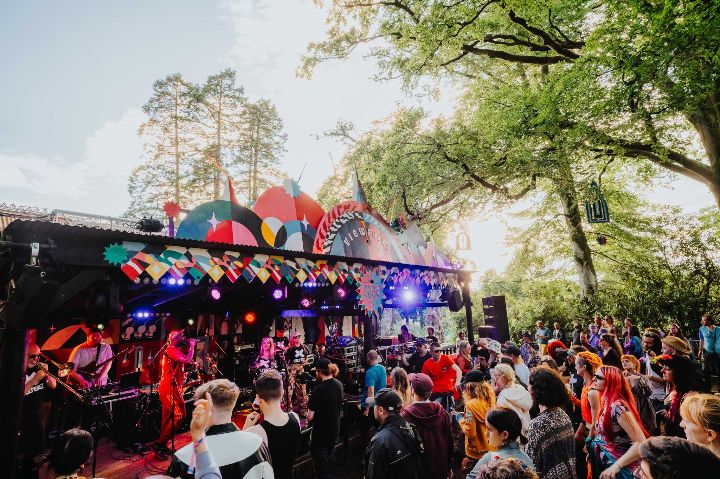To start off, can you tell us about Kelburn Garden Party and what makes it one of Scotland’s most unique music and arts festivals?
The Kelburn Garden Party is a unique, independent, magical music and arts festival. It is an annual explosion of colour, creativity, and culture in the grounds and glen around a 13th century painted castle on Scotland’s spectacular West Coast.
Established in 2009, the festival is renowned for featuring a high quality and diverse range of musical styles across 10 stages. It is programmed with the help of a revolving cast of Scottish guest curators from across the scene. This means the line-up is always fresh and exciting, with a strong focus on homegrown talent, alongside hand-picked guests from around the world.
The music programme is augmented by a feast of creative happenings and fun attractions embedded around the site. This includes a huge range of interactive art installations, living theatre, pop-up parties, glen walks, waterfall plunge pools, poetry, workshops, cabaret, and downright surreal happenings. Kelburn Garden Party is a family-friendly, magical cultural safari for the mind, body and soul.

Kelburn Garden Party. © Kelburn Garden Party





